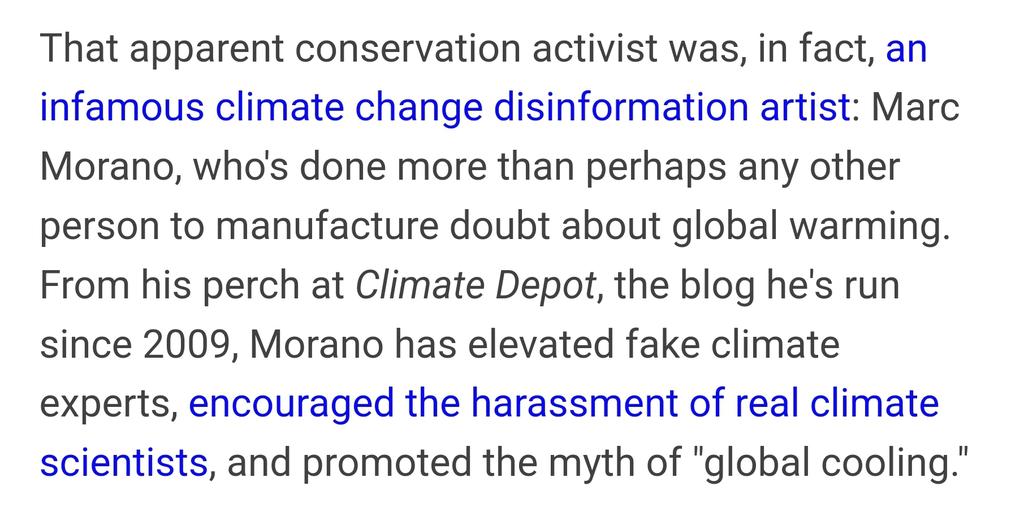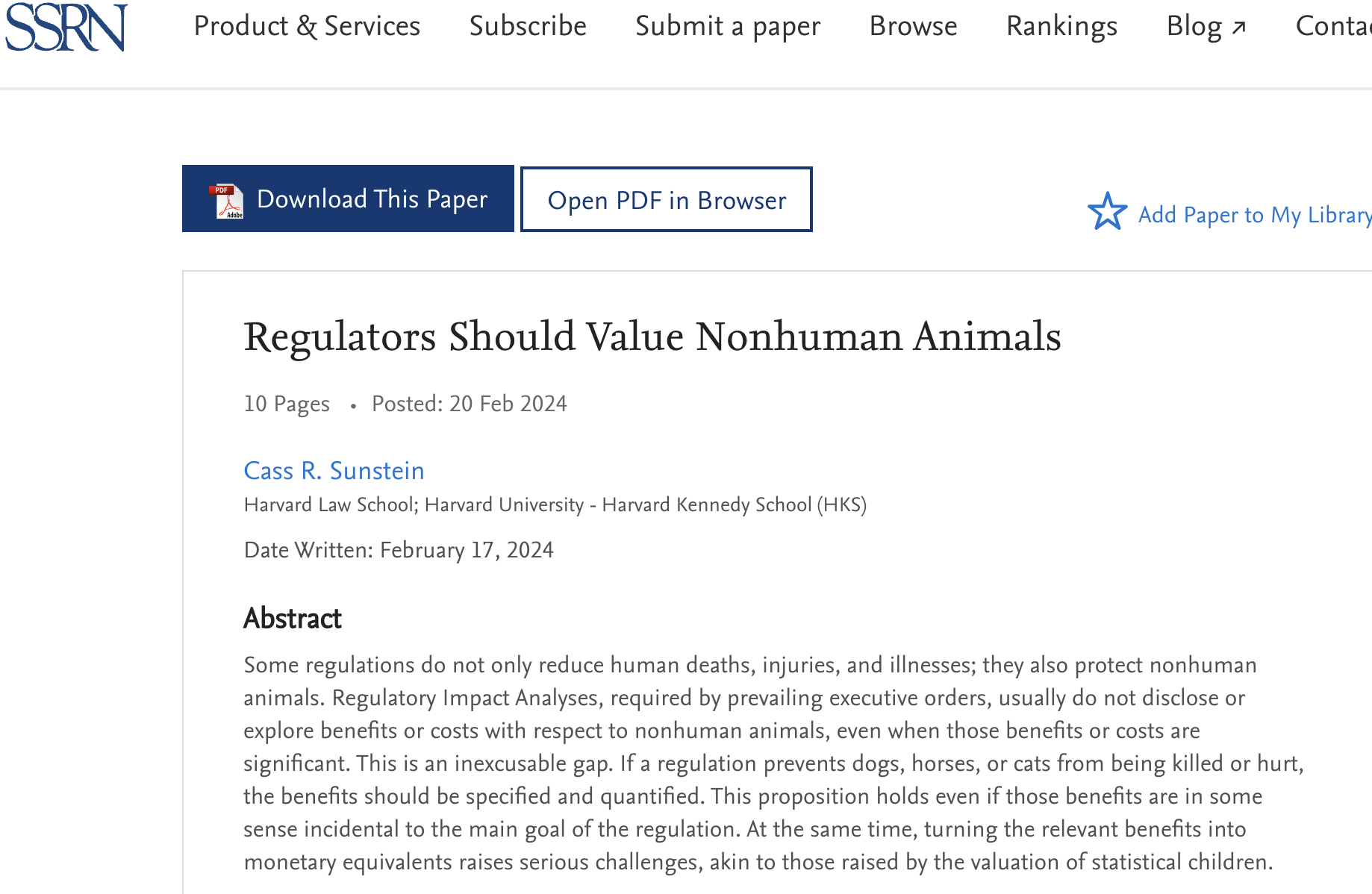Reuters: Right-wing groups sue US over offshore wind impact on whales – Morano: ‘Where are the 1970s Volvo driving save the whale liberals when you need them?’
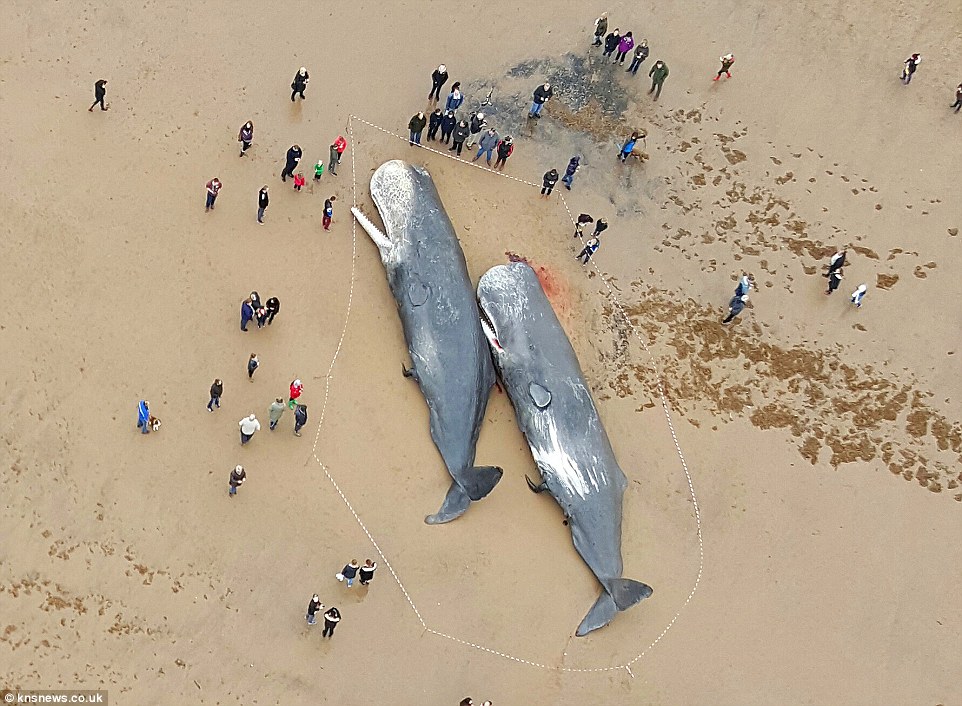
REUTERS: Right-wing groups sue US over offshore wind impact on whales – March 18 (Reuters) – Three right-wing groups sued the Biden administration on Monday over its approval of a wind project off the coast of Virginia, alleging it failed to consider the facility’s impacts on endangered whales. The federal lawsuit filed by the Heartland Institute, […]
Coalition sues to block Virginia offshore wind project to protect the Right Whale
https://www.cfact.org/2024/03/18/coalition-sues-to-block-virginia-offshore-wind-project-to-protect-the-right-whale/ By CFACT Ed Lawsuit filed by The Heartland Institute, the Committee for a Constructive Tomorrow (CFACT), and the National Legal and Policy Center Construction of Dominion Energy’s offshore wind project comes as more and more dead whales are washing up on the Atlantic Coast The North Atlantic right whale is so critically endangered […]
Let them eat–snake?! Python farming could offer one of the most sustainable sources of meat in the world – ‘Much less carbon intensive’
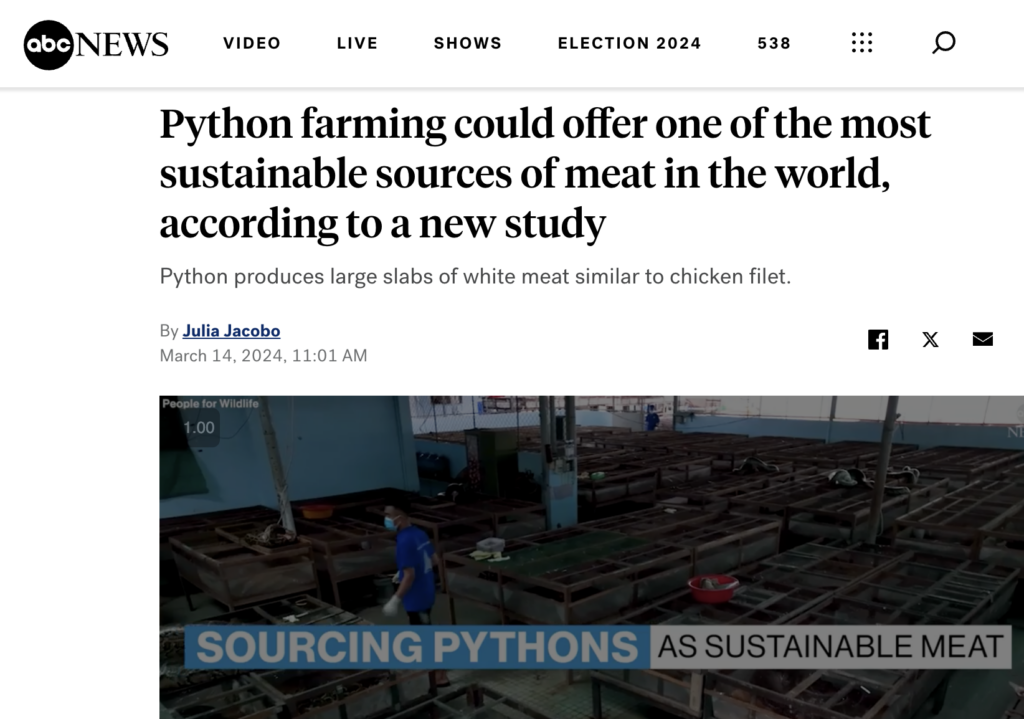
https://abcnews.go.com/International/python-farming-offer-sustainable-sources-meat-world-new/story?id=108084507 By Julia Jacobo Python farming could offer one of the most sustainable sources of meat in the world, according to a new study – Python produces large slabs of white meat similar to chicken filet. Scientists are learning more about what sources of meat could serve as more sustainable alternatives to beef, pork and […]
Analysis: Polar Bears & Coral Reefs Are Doing Just Fine
Polar Bears and Coral Reefs Are Doing Just Fine By Linnea Lueken We live on a beautiful planet, filled with a dizzying assortment of interesting creatures and living organisms. The vast majority of people want to see that life flourish, so it is no wonder that particularly attractive species like cute (usually) polar bears and colorful […]
Sierra Club report labels Morano an ‘infamous climate change disinformation artist’ – ‘Morano, who’s done more than perhaps any other person to manufacture doubt about global warming’
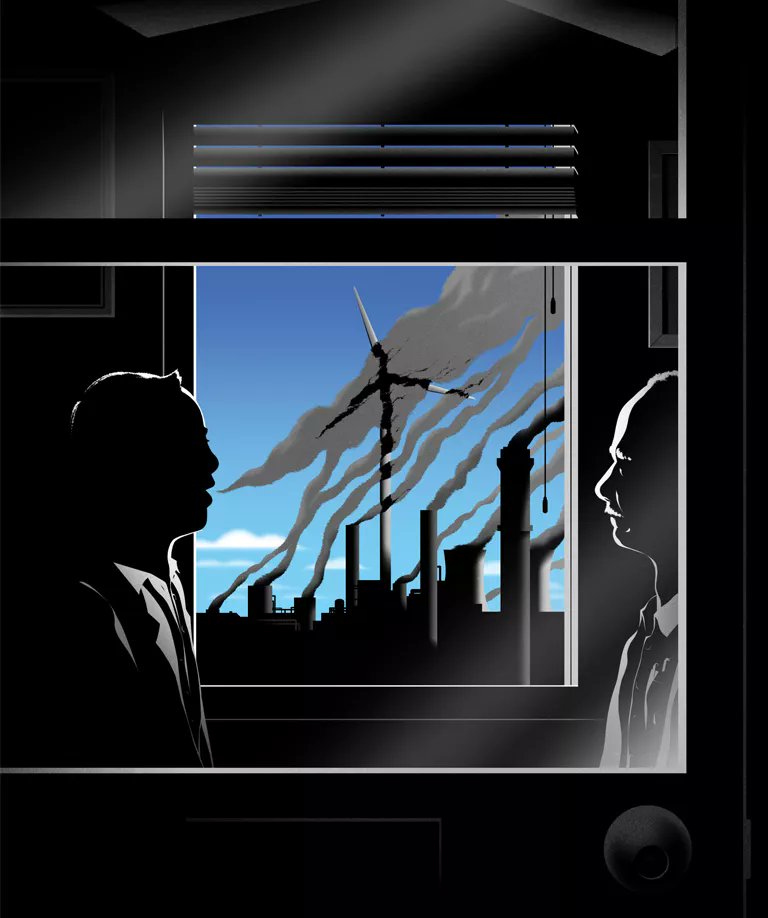
Climate-Science Deniers, Right-Wing Think Tanks, and Fossil Fuel Shills Are Plotting Against the Clean Energy Transition – Inside the conspiracy to take down wind and solar power – By Rebecca Burns – This article was published in partnership with The American Prospect.
LAST JULY, a small group of rabble-rousers boarded a trio of powerboats, banners and bullhorns in hand. They were headed for the massive floating construction site of an offshore wind farm 35 miles from the eastern tip of Long Island, New York. As the boats motored through the swells, the self-styled activists broke into a chorus of pleas for the wind farm construction to cease—chants likely intended less for the still-faraway workers than for the camera there to capture footage. “Hear this message: We’re here to save the whales!” called out a man in a black polo shirt. “If you were a fossil fuel project, you would have been shut down long ago.”
That apparent conservation activist was, in fact, an infamous climate change disinformation artist: Marc Morano, who’s done more than perhaps any other person to manufacture doubt about global warming. From his perch at Climate Depot, the blog he’s run since 2009, Morano has elevated fake climate experts, encouraged the harassment of real climate scientists, and promoted the myth of “global cooling.”
“Figures like Morano may be gaining ground in a larger mission: twisting public opinion against renewable energy in other would-be host communities.”
CFACT blasts offshore wind multiple-site assessment as ridiculous
https://www.cfact.org/2024/03/06/cfact-blasts-offshore-wind-multiple-site-assessment-as-ridiculous/ CFACT has long called for an environmental assessment of the combined impact of the clusters of huge offshore wind facilities being pushed by the Feds. Each facility is being separately assessed even when they share a boundary. In many cases, it is clear that the adverse impacts will overlap and compound the harm to […]
Giving rights to rivers – Granting ‘legal personhood’ to nature!? UK government declares No Way! ‘It is a fundamental principle for the UK and one from which we cannot deviate’
https://link.thetimes.co.uk/view/643dae8e52f5b18ea2028d73kj3fo.sh/81197753 By Henry Bird – Newsletter writer, The Times of UK Excerpt: Last week, a UK government delegate stood up at the UN and declared that the British government would never recognize that nature has rights. “It is a fundamental principle for the UK and one from which we cannot deviate,” he said, ruling out […]
New Paper: ‘Regulators Should Value Nonhuman Animals’ – Seeks ‘to estimate the number of dog-years saved by a regulation’
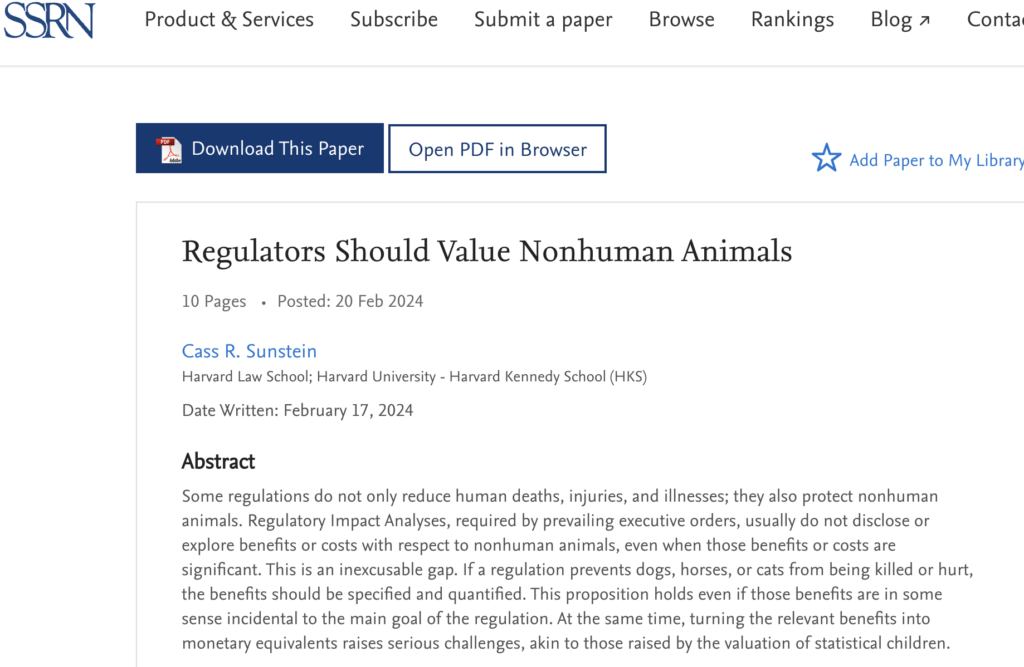
Excerpt: “If a regulation prevents dogs, horses, or cats from being killed or hurt, the benefits should be specified and quantified. .. .Outside of federal rulemaking, an academic study finds that a Value of a Statistical Dog Life is $10,000. If the goal is to come up with some number, it would be an advance to use that one, perhaps as a plausible lower bound. But there is a natural objection. Is the life of a dog plausibly 1/1,000 that of the life of a person? … At a minimum, agencies should attempt to quantify benefits and costs to nonhuman animals even if they cannot monetize them. With the help of contingent valuation studies, they should also attempt to monetize those harms.”
Bloomberg columnist: ‘Forests Are Doing Better Than We Think’ – ‘It has been the rise of fossil fuels that turned the corner on deforestation’ as coal, oil, & gas replaced wood as an energy source
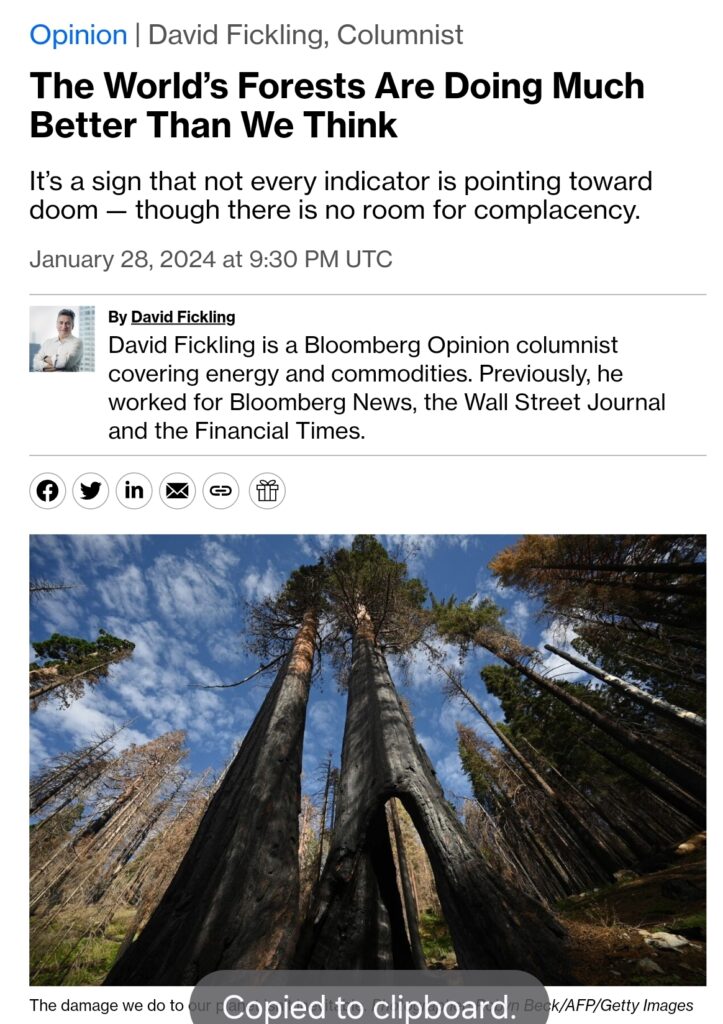
https://archive.md/2024.01.29-002251/https://www.bloomberg.com/opinion/articles/2024-01-28/climate-change-forests-are-doing-better-than-we-think David Fickling is a Bloomberg Opinion columnist covering energy and commodities. Previously, he worked for Bloomberg News, the Wall Street Journal and the Financial Times. Excerpts: You might be surprised to discover, then, that many of the world’s woodlands are in a surprisingly good condition…. Take England. Forest coverage now is greater than at […]
Biden’s offshore wind initiative is set to join the Titanic
Biden’s offshore wind initiative is set to join the Titanic BY CRAIG RUCKER, President Biden’s plan to install 30 gigawatts of offshore wind capacity by 2030 appears headed into the same dark Atlantic waters as the Titanic before it. Last fall, Orstead scuttled plans to build its Ocean Wind 1 and Ocean Wind 2 installations off the New […]

